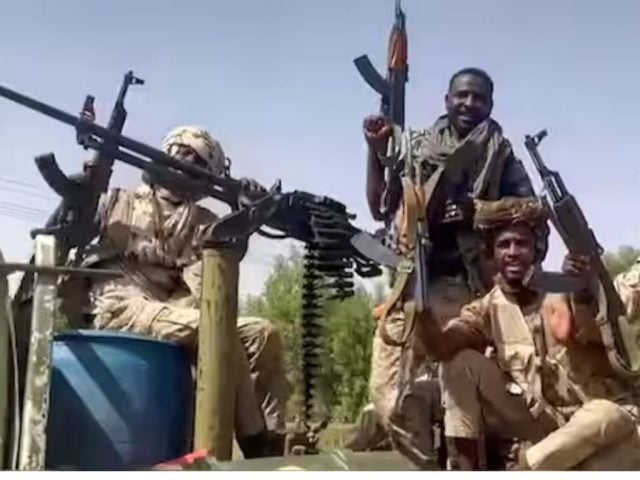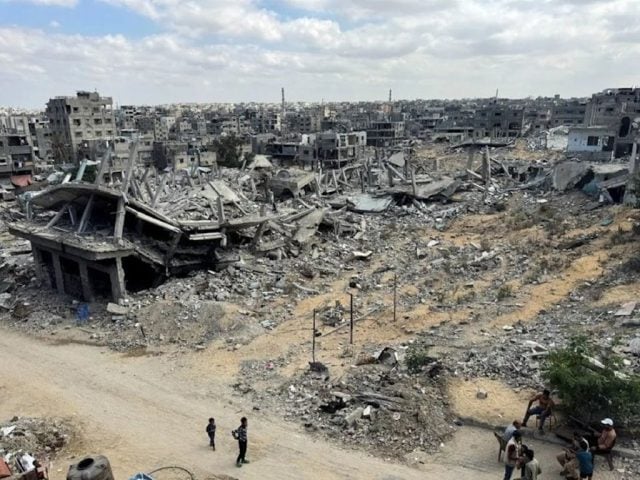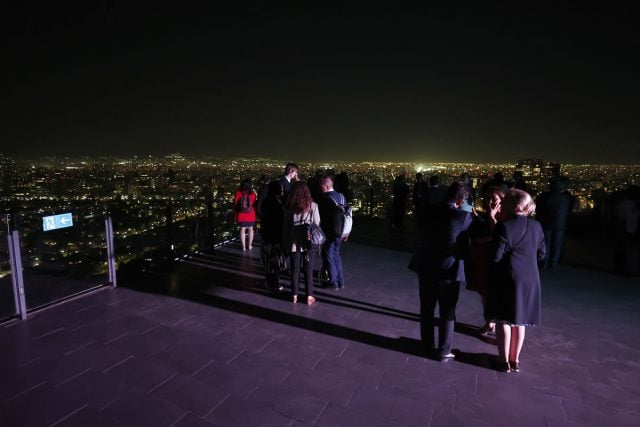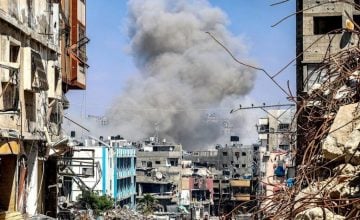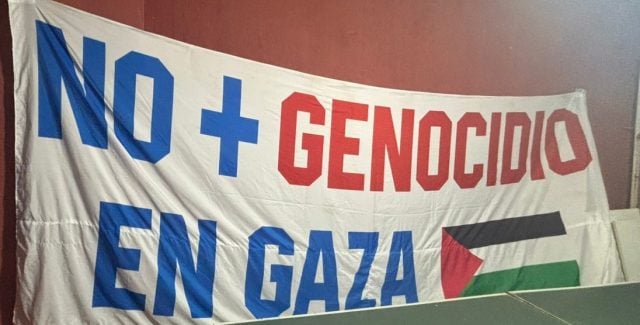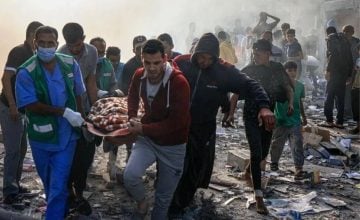Original article: Genocidio a la vista: evidencia satelital y testimonios describen atroces masacres en Sudán
Satellite evidence and eyewitness accounts have exposed a wave of horrific massacres in Sudan, raising alarms about potential genocide.
A report by researchers from the Yale School of Public Health utilized satellite images and videos to substantiate claims of mass executions in the African nation.
The coalition of Joint Forces—a group allied with the Sudanese regular army—has accused the Rapid Support Forces (RSF), a rebel faction, of murdering over 2,000 civilians between Sunday and Monday (October 26-27), including a significant number of children, after seizing control of El Fasher, the capital of North Darfur, one of the regions most severely impacted by the conflict.
After more than 500 days of siege, the rebel group announced on October 27 the capture of El Fasher, which hosts more than 260,000 residents.
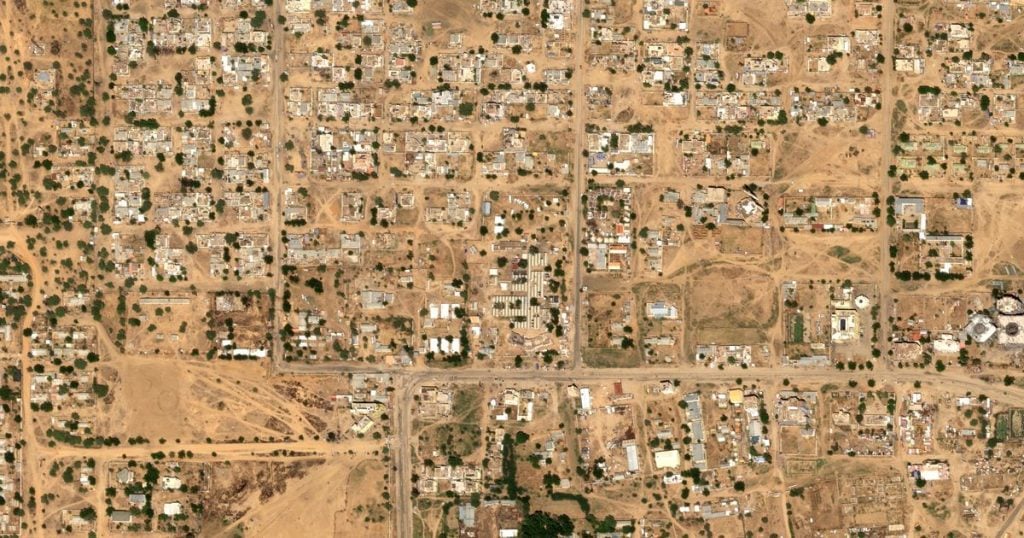
Satellite Evidence Confirms Massacre in Sudan
Yale HRL researchers, monitoring the siege through satellite images and open-source data, identified a pattern of violence by discovering groups of objects «consistent with the size of human bodies on the ground near RSF vehicles» along with a «reddish discoloration of the soil,» possibly indicating blood or disturbed earth.
According to RT, the scientists indicated there is «evidence consistent with a massacre at the old maternal and child health hospital east of El Fasher,» which had been non-operational for over a year.
«Satellite images from October 27, 2025, show lines of dark objects, consistent with groups of individuals, extending from the building to the gate of the premises, as well as a group of people near that gate,» the report detailed.
Additionally, they noted that the images corroborated accusations made by the city’s Resistance Committee that the rebel group had carried out murders at the Saudi Hospital and its surroundings.
Alongside digital evidence, the World Health Organization (WHO) reported on Wednesday, October 29, the murder of more than 460 people in an attack by the paramilitary Rapid Support Forces against the maternal and child health hospital.
In a message shared on social media, WHO Director-General Tedros Adhanom Ghebreyesus expressed his «dismay over reports of the tragic deaths of over 460 patients and their companions,» while calling for a «Ceasefire!»
«All attacks on healthcare facilities must cease immediately and unconditionally. All patients, healthcare workers, and facilities must be protected under international humanitarian law,» he stated.
Ethnic Cleansing
The Yale University researchers also revealed evidence of «house-to-house cleansing operations.»
It appears that a systematic and deliberate process of ethnic cleansing of non-Arab native communities is being carried out in El Fasher through forced displacement and summary executions,» they indicated.
In line with this, the UN warned of a recent mass exodus of people from El Fasher to Tawila, a town located about 60 kilometers west of the city, which already hosts nearly 650,000 men and women.
According to testimonies from the displaced, widespread killings based on ethnic and political motives have taken place, including cases of individuals with disabilities being executed for being unable to escape, while others were shot while trying to flee, noted Jacqueline Wilma Parlevliet, a senior official of the UN Refugee Agency in Sudan.
She indicated that a large number of civilians remaining in El Fasher still cannot flee, as many are «too weak» and find the situation «too dangerous» to move.
On Monday, October 27, the Sudanese Doctors’ Network reported via a statement that during the seizure and assault of El Fasher, the RSF “killed unarmed civilians for ethnic reasons in what constitutes an act of ethnic cleansing.”
In this regard, the UN Office for the Coordination of Humanitarian Affairs (OCHA) expressed being «horrified» by the events and reported incidents of summary executions, house-to-house raids, attacks on those attempting to flee, and an exponential rise in cases of sexual violence against women and girls.
The organization warned of the increasing risk of ethnically motivated executions in a region marked by the memory of the genocide in Darfur perpetrated between 2003 and 2005.
Internal Conflict in Sudan
In April 2023, an internal conflict erupted in Sudan, in which two military factions that were initially allies but have become enemies are vying for power. These factions are the regular army (FAS), led by Abdel Fattah al-Burhan, the current head of the Sovereign Council, and the Rapid Support Forces (RSF), commanded by Hemedti, who was his vice president.
Both factions participated in the coups of 2019—which ousted dictator Omar al-Bashir—and the 2021 coup, which dissolved the transitional civilian government.
The rupture occurred when neither side wanted to concede full control of the African nation.
However, the dispute extends beyond politics, as it also encompasses economic resources and international alliances.
In more than two and a half years, the war has caused over 9.6 million internally displaced persons and nearly 15 million vulnerable children, according to UN data from October 23.
Since the conflict began in April 2023, the WHO has recorded 185 attacks on healthcare facilities in the African country, with a total death toll exceeding 1,200 and around 400 injured.
The Darfur region, where the conflict is concentrated, is rich in gold and strategic minerals, such as rare earths. Over the past ten years, the RSF faction has managed to control gold mines and trade routes, amassing fortunes through smuggling networks.
According to the University of Chile, «part of that gold, according to various international investigations, has been irregularly shipped to the United Arab Emirates, one of the main global centers for gold trade.»
This alleged connection is set against a broader political backdrop that some analysts describe as «sub-imperialism,» based on a strategy of regional influence combining economic interests, military alliances, and political counter-revolution.
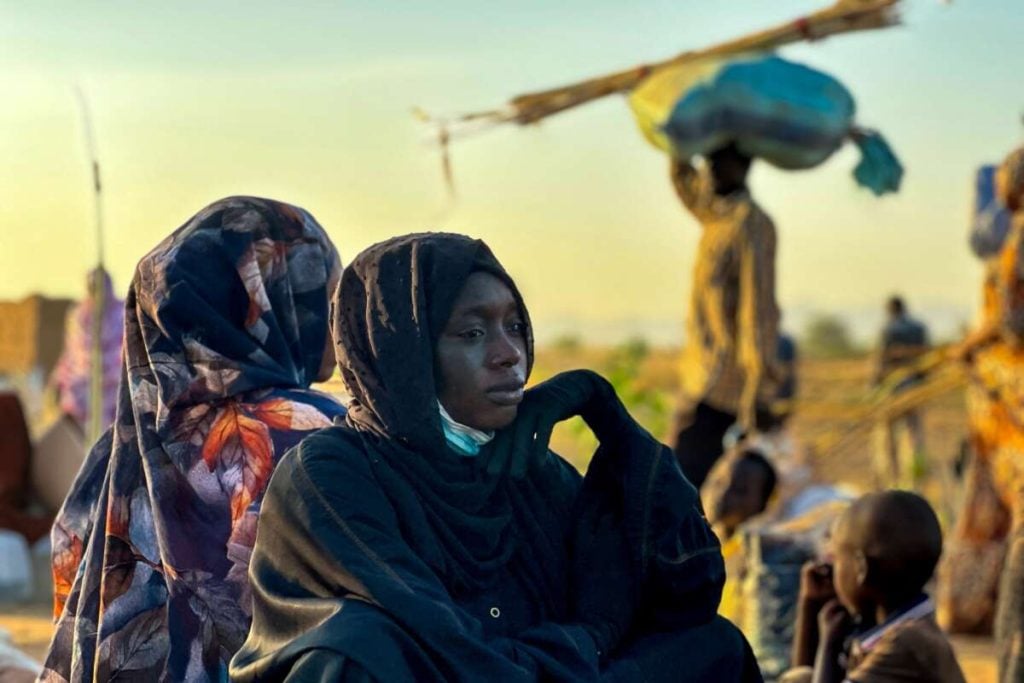
«Sudan has Become a Sad Example of Indifference and Impunity»
The UN describes the situation in Sudan as one of the worst humanitarian crises in the world.
The figures are alarming: more than 150,000 people have died, and 15 million have been displaced—the largest recorded internal displacement crisis globally. Additionally, nearly 18 million Sudanese are suffering from hunger, with 5 million on the brink of famine. Between 70% and 80% of healthcare facilities have ceased operating.
Tom Fletcher, director of the UN’s Office for Humanitarian Affairs, summarizes the situation with a poignant statement: «Sudan has become a sad example of indifference and impunity in the world.»
